E3: The Coco + Arc Story and her take on Markets
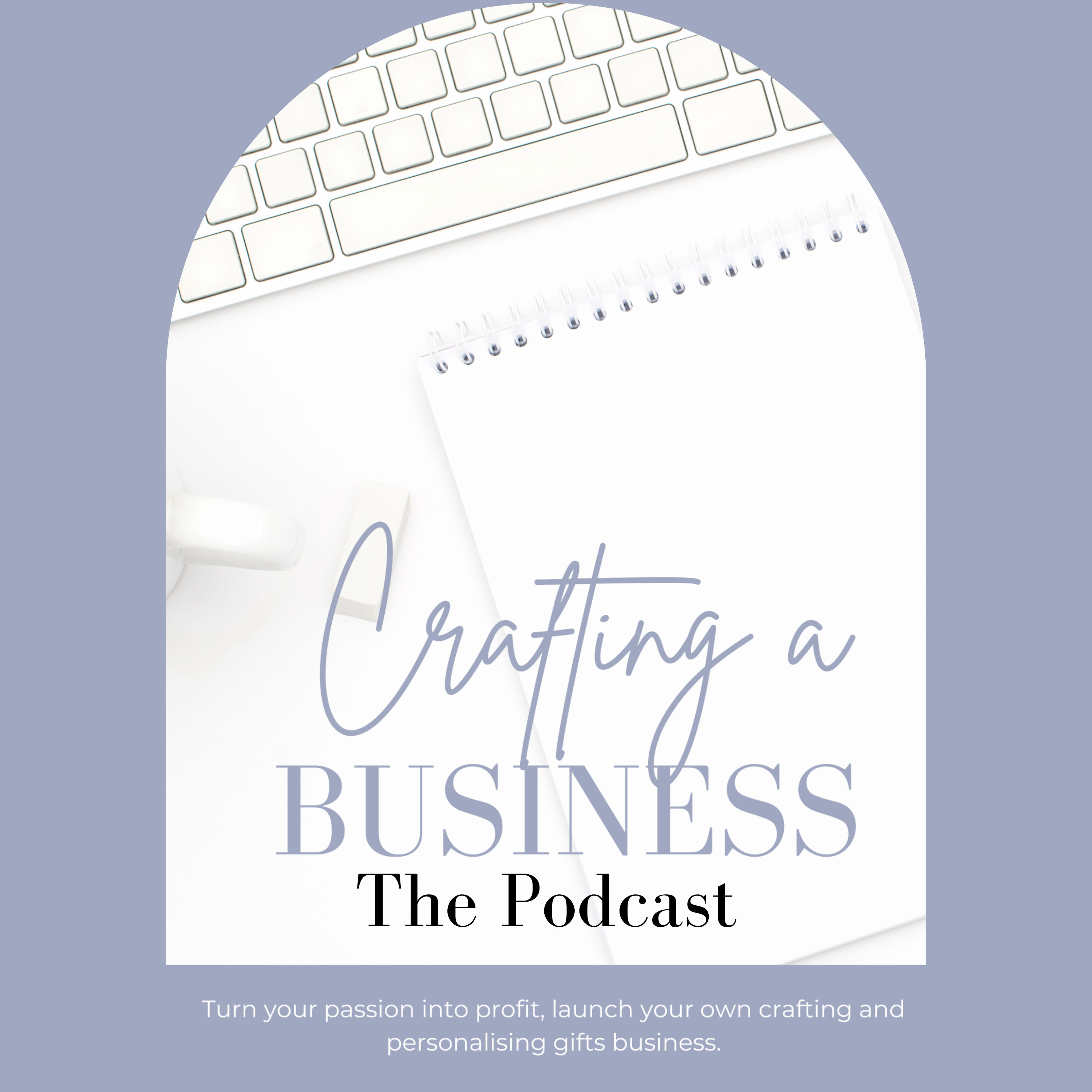

Alannah from Coco+Arc is an amazing business owner and stay at home mum from Queensland. She takes us through her strategies and so generiously shares her knowlege on how her business has grown through exhibiting at markets.
Listen to the Episode:
Transcript:
I'm really excited about the conversation that's about to happen. Miss Alannah from Coco and Arc has been a customer of mine for a while, and it's just been amazing to see her growth. I remember I had just started selling blanks and can glasses or can cups were my first item.

And I remember her order coming through. I think she bought maybe ten or so pieces first, and then I was like busy trying to pack it all and get it all out and everybody's orders. I was really excited because I finally had orders and then two weeks later, another order came through from Alannah. Then, I think another week later and another order came through. The second time, she used, a welcome discount, so she must have not used it the first time.
Then I realized, hold on, she's growing, and she needs more. Clearly, whatever she's doing is she's doing it really well. So then I messaged her, and I said, “Hey, Alannah, this is Debbie. I noticed that you put through another order. I'm so happy that your business is growing. Would you be interested in wholesale?” And she was like, “Yes” then I ended up giving her a wholesale discount, and now she literally orders boxes from me.
So, I message her when I'm about to put an order in my supplier and say, I'm ordering, I don't know, 20 boxes, I will order an extra two for her or a couple of extra, depending on which size or style that she likes. But I really wanted to get this chat in order because markets for her are her main selling point, and I wanted to get to know her process and how she does it, because I can't do markets. I did one market last year, and I felt like I was just failing so badly at it, and so I wanted to get her expertise on it, because as part of the course, I really want to help crafters grow their businesses and grow their businesses online.
And markets are really really good way of harnessing that local audience. And clearly, she was doing so well at it, so I wanted to get her in for this chat. So enjoy this, I hope you learn a lot and Alana is part of the course as well. One of her goals this year is to translate all of her market sales and her audiences online so I'm really grateful that she's taken the time to talk to us and also really grateful that I'm able to help her. So, enjoy.
Alannah: Yeah. Perfect. I'm nervous.
Debbie: So why don't we start with why don't you just tell me? Tell me your story. How did you start this business? Start from the beginning.
Alannah: Perfect. So, I started my business in July of 2021. I was six months pregnant at that time, and I was very ill, hated going to work every day because I knew it meant I had to try not be sick. I was a dance teacher, so you have to be I was teaching dancing. So, as you can imagine, everything ballet, jazz, tap, contemporary acrobatics, everything.
So pretty much since I finished high school, I just went straight into teaching. I've been doing that—so very physical, always have to be happy and entertaining for the kids, especially with the younger ones. It was just so physically draining that I was coming home, hating it and I love dancing, so that was not me at all. But I have previously worked for small businesses and always wanted to have my own small business.
So I thought, let's give this a go whilst I'm pregnant and then once baby comes, if it's working, I can go back to that. If it's not for me, then I'll have some time off and go back to teaching. So I gave it a go after I quit my job and loved it every minute since. Now, I never want to work for anyone ever again.
But, yeah, just started and I started primarily as a candle business. I love home fragrance and scents and then have slowly transitioned. I still do the candles, they're still quite popular, but slowly transitioning.
Debbie: I haven't lit it, light it, whatever that word is. I have it.
Alannah: No, that's awesome. So slowly transitioning because I bought a cricut machine to help the candle business to be able to create the labels and the thank you stickers and everything. And then I sort of was like, what else can my machine do? And have gone from there. So now, primarily, I am a crafting business, but I do still have my dedicated candle room, which I love to be able to have both sides of it.
Debbie: What’s the main outlet, I guess, or channel like, where do you kind of distribute? Is it mainly online? Is it face to face retail? How does that work? Tell me a little bit about that.
Alannah: Yeah, so I sort of distribute in three areas. First one being online. That's not my busiest outlet, but that is what I am working towards. As you know now, I'm pregnant again so with two babies, a husband that works away, it's the easiest one for me to do from home while the babies are at home. And I can sort of do that during that time when they're independently playing.
So that's the easiest outlet for me physically to do but it's not my busiest. So that's a goal that I'm working towards this year in expanding. My second outlet would be stocking in stores. So a lot of stores, it's a more popular model at the moment, where they rent you a space—they rent you a shelf or area of their shop and you pay the rent and then they sell the product for you.
So I sort of change how many stores I'm in at a time. Sometimes it's up to ten, and then at the moment, I'm only in two. Just depends on the season, how it's going, where the store is—if it's in a tourist location, then it's great for summer or great for Christmas and Mother's Day. Or if the store is not in a tourist location, sometimes it's pretty steady just all year round, just those consistent sales. So that one's a really good one because you don't physically need to be there selling.
The stock, you just need to make sure that the rent portion is not taking out of the profit portion too much like paying a market store fee. So that's my third one is market, and that is my primary income.
Debbie: Does the shop charge do you pay the shop a commission or it's just the rent so they don't take a portion of the item sold?
Alannah: Every shop is different. So some shops I'm in, you would pay your weekly or monthly rent and then they will take 10% to cover their F plus fees, their packaging, like, they'll wrap your product up and put it in the shopping bag and just their time in general, like power, electricity, all of that sort of stuff. Then some shops that's included in the rent.
So I'm sure you're paying for it either way. It's kind of a risky one, you just want to make sure that you're getting on a contract with them where you're not signing up for six months, not knowing how it's going to go. So I always try and do two months to three months and test the waters a bit so that you're not financially at a huge loss, but you can give it a go, see how it's working.
Making sure that rent is being utilized and you're getting those sales to bring back to you. Because that's audience that I wouldn't have either online or at a market, they're in a shopping center or a shopping mall or something like that.
Debbie: My mind always goes to digital, right? So do you track that in any way? Like a customer comes into this store, buys the product, where does that information go? Obviously, the store will have their—they'll probably do their best to try and get their email address or something like that. But do you have any part of that, or is it just like the relationship ends there?
Alannah: Well, I try and I always leave business cards on my stand, so if they can't purchase on that day or they want to follow along for the journey, they can find me online and at my website. And then I do also with some stores, they let you leave.
So when I send out an order, I usually send, like, a thank you discount code to try and get reorders for some stores that let you leave that, and when they purchase, they pop one of those cards in the bag, which is good, because that transitions the customer from shopping physically to shopping online, which is my end goal, to get them to the online platform. So that's a little bit different to what like, say, markets, but it's a similar idea where you paying a fee and then they're physically shopping. The goal is to get them to that end—sort of market online.
But my third one is market, which is my main sales, I guess. So I started doing market my first week of opening. I've just always had a dream to have my own shop, and that was the closest thing that I could get to. It was a market stall. So the week I opened that weekend, I headed to a market, actually did two—I don't know why I did two that was a lot.
Debbie: Because you were like, go hard or go home.
Alannah: Yeah and then I was addicted. I loved it. I loved being able to set it up like my own shop and it was just awesome to be able to talk to the people in person, to be able to explain the product, how it works. Back then, it was just candles and wax, melts and diffuser all home fragrance category but it was awesome to be able to do that in person.
I've done markets ever since I started, so that's definitely my most popular outlet. And people will message me almost every day saying, “What's your next market?”, “Where can I find you?” If they want to see it in person before buying online.
Debbie: Buying online, okay. And do you find, like, if we're thinking about the user journey, because I'm all about that kind of digital user journey and translating that online. So what do you see as the kind of natural step to that?
Say a customer finds you at a store, when you're talking about renting the shelf, and then they don't decide to purchase you then, but they follow you on socials. So that's, I guess, one path. But then the other side is, what if they come to a market? They browse, they really like your stuff, but they're not ready to purchase. Then what happens? Normally, like, in a market setting?
Alannah: Yeah. So I always try and talk to the customer when they're in the store, even if they're not wanting to purchase, they usually have some questions. So I usually just try and make it as positive experience as I can for them. However, usually I try and get them to leave with a business card that has all our information, where they can either go to our socials or go to our website. Because I do find on a market day, social media follows are increasing by 20 or 30 on that day, 20 or 30 people sorry accounts.
And then on a non-market day, it's usually less than that. So I do know that some of those interactions are transferring into follows into people joining the community, and then they might even follow for another few months before they finally commit to that purchase. They've seen the product ten times, twelve times, and then they say, yeah, I'm ready and then that turns into that online sale. Or they'll say, “Are you at this market this weekend?” And I can go back and say yes or no.
So always trying if they seem genuinely interested in the product, because some people, it's a market, they're just there to browse or just there to get their fruit and veg, or they're not necessarily interested, they've just come in to have a look so those ones you can kind of tell once they walk in. But if they're generally interested in the product, I always try and get them to leave with a business card. And hopefully that translates into someone
Debbie: Entering into your community.
Alannah: Yes. Socials or website community online, because that's the goal.
Debbie: Have you thought about kind of like because the one market that I did, me of my one market. I went to digital, right? And of course retailing is not my forte, but what I did was I asked them, I said, “Oh, can I add you to my email database?” So I got their email address. You can also do like a competition or something. Yeah, like set up, you could win.
A lot of people do this. Win your chance to win one or five, whatever prize. Then they'll give you your email address and then they'll kind of enroll themselves into your community. So have you thought about something like that?
Alannah: Yes. So what I've got on my ever growing to do list this year is to do a giveaway. So it'd be for the month of markets, because this month I've got eight markets. So to give away something at every market is quite a lot—too much for such a small business.
So for the month of, say, April, you get a chance to win, say, a can cup or a mug or a candle at the end of the month for signing up. So I've got the form ready to go. I'm just waiting for the month to tick over so I can start fresh, because I want to do it, I think, the start to the end of the month, and then that way I can email them if there's one. Because I had the idea of, like, I'm giving away at the market. Not everyone stays at the market the whole day and everything, but it's just going to be easier to get that online and then just ship it out.
Debbie: So. Yeah, that's true. It's hard to kind of because as you said before, they're there to browse and they're probably just picking up their fruit and veg, right? So you don't want to shove a sale down their throat, right. So there has to be something in it for them to be able to willingly come into your kind of community, because ultimately you want to market to them later, but in a way that is fair to kind of their time and what they want to be marketed. So it's a fine line.
Alannah: I don't want to be too pushy and come across as buy my products, give me your email address, then they're just going to be, “No thanks, I'm not interested in this.” So it's like building that relationship slowly.
I believe the more times people see something, the more they're likely to want to join your community and want to purchase online or follow along and see what you do in your day and total of that. So I try and slowly build that relationship.
Debbie: You're preaching to the choir. I love it. So we talk about this in the course a little bit, right? So the TikTok that I uploaded the other day, I don't know if you can see this, but this web looking thing.
Alannah: Oh, my goodness. Yeah.
Debbie: I know it's really messy, but each of these kind of oh, it's backwards. Anyway, each of these is like different ways for someone to interact with you. Right? So ignore my very messy writing. But like, it could be Facebook, it could be Insta, it could be at a market through word of mouth, it could be on Stories, it could be on YouTube. You never know when someone's going to find you. Then they might browse an email, for example.
If you've got their email address, then they might come back to socials. Back to email, then they might browse your website, then they might go back to their socials again. This might be like 20 times in this gray area before they're ready to get to this section. This section here, it's all backwards. Sorry, I don't know where I'm pointing.
Alannah: But no, that's okay.
Debbie: Where the purchase is. So, as you say, the more touch points you have and the more I see it as kind of borrowed time. They can choose to spend that time with you on socials or whatever channels. So you don't want to take advantage of that. Everyone knows when they're going to be sold to.
Alannah: It is so easy to just scroll. If they choose to consume that content, then that's lucky.
Debbie: Exactly. You got to be very into them. But they have to be like an exchange. There has to be a value exchange, I call it. They have to get something from you, whether it's entertainment or education or they've learnt something or whatever it is, you have to make that time valuable for them.
Alannah: And I really like to the point I wrote it down in the first chapter of the course, where you said 80% soft sell and 20% hard sell, because that's 100% true.
Even at markets, which is not online, you're not writing a caption and you don't want to say when they walk in, “Buy my cup. Here's my cup, it should be like “Hi, how's your day?” Like, I take my water bottle and I drink out of my water bottle. They see me using it, they might ask, “Do you have this in this color?” And we're just having a conversation that hopefully leads to a sale, and if it doesn't, hopefully leads to a business card or they say, “Where else can I find you?” It's just not going in straight away for that hard sell.
Debbie: Because it doesn't work right?
Alannah: It can be really off putting. And I don't like going into someone else's market stall, and they're just straight away, this is what I have, and it's $35.
Debbie: And one of the sayings that I have is you don't ask someone to marry you on the first date, right? Yeah. You wouldn't ask them for whatever your end goal is, you wouldn't ask them. So why would you do that in a retail setting? In an online setting?
I really want to normalize that hard sell is not what's going to sell. It's the soft sell and the education and all of that value add. And that might take you 100 times even to get exactly that stage, but that's 100% that will grow businesses. Really interesting. And I wanted to ask about how do you know which markets are a good one? Is it trial and error or is it how do you know?
Alannah: Yes. So definitely trial and error. I have done some amazing markets, and I have done some doozies that have not been fantastic, but you won't know until you try. And I think chatting with other store holders, like, I always chat to my neighbors and they say, “Oh, try this one” or they might say, “Oh, there's heaps of crafters there.” Maybe don't go to that one because there is space for everyone. But some markets only allow certain, like, two of each.
Debbie: Like a quota, right? Okay.
Alannah: Yeah. So some markets don't mind, and some markets do have a quota. So, you always have to email and say what you make, say what you sell, and then they sort of decide if there's a space for you. But I like to give a market a go two to three times before I really decide if it's going to work for me and my business, because there's so many factors that can change the outcome of your day.
Like, if there's an event on, I like to do markets closer to the city. There's a stadium right beside one of the markets I do. So if there's a rugby league game on that day, then all the people catch so it's a great day. If it's raining, it sucks to be a marketer, but it's the risk you take and a lot of markets won't cancel in the rain. They go ahead, rain, hail, or shine, unless it's dangerous, then they'll cancel and you usually get a credit.
But I do feel like you have to do it two to three times just to get that baseline average and know what sort of you can expect at each one. For me, personally, market closer towards Brisbane are busier and better for me, they're worth traveling the 30 to 40 minutes into the city versus markets closer to my home. They're just a bit busier.
My product fits better with that sort of audience, so I do tend to go out further, but it makes the drive worth it. But there's just so many variables that can affect it, so I don't think you can try one.
But there's some really great Facebook groups that you can join. So I'm in Southeast Queensland Market Store holders group, and market event holders, they post in there saying, “This is our market, sign up here or small businesses post and say, “I sell popcorn, where can I go?
So you get sort of both sides there, but people say, “Oh, I highly recommend this one.” So I click on the page and I have a look and it doesn't look like anyone does something too similar to me, so I give it a go. But I always try and have one or two markets that I go to consistently—monthly or bimonthly so that my regulars can come back.
Debbie: That's what I can ask. Okay, yeah.
Alannah: So I have people who just it's the perfect gift they purchase almost every time they see me. They're really good to go to because they don't want to necessarily purchase online and pay that shipping fee, which is a turn off for a lot of people. I do offer free shipping for over a certain amount, but if they're only picking up a cup or a mug or one candle each time, the markets are primarily best for them to come to.
So I do try and stick to one or two consistently every month or bimonthly and then try a few new ones here and there so that I'm expanding to new audiences every time. Because I think if you stay in the same spot every single week, you're limiting who you can see. Because if it is a market that sells food or fruit and veg, you're likely getting people doing their weekly top up on fruit and veg. Or if it is a craft market, you're more likely to get new people because they haven't been to it yet. So there's a few different types of markets.
Debbie: And do you notice, like, you get similar people across different markets because you kind of mentioned you would travel the 30, 40 minutes into the city. Do you find the same people each week are going, or is it completely different audience each time?
Alannah: I would find I would say it's a bit of a mix. So I definitely do get the regulars or the same type of people coming into the stores. And then you definitely find the people who are traveling or on school holidays. You always get a lot more people coming because they bring the kids to get them out of the house and just people who just they're not market goers frequently, but they've stopped, they've seen the market, so they pull aside.
So I'd say it's pretty split evenly whether they're a first time market goer or I see them most weeks because even if they don't come into the store every week, I see them walk past and I know I've seen that face before.
Debbie: Awesome. Okay, my million dollar question is how do you know how much to make and also what designs work? And is it all trial and error and figuring out? Okay, this market area is a bit boutique-y, so I'll make more of that. How did you know?
Alannah: Yeah, you don't.
Debbie: There's no like manual.
Alannah: Yeah, no, and fortunately not. But I took eight, I sell coffee mugs with designs on them and eight can cups. So I had my usual set up with my candles and everything, and I just put them on the side of the table because I've been playing with the cricket, and I had some I loved them, and my family had said they loved them, so I was like, I'll just make eight to sell.
And they sold out in the first hour or two, and I was like, okay, maybe next time I'll make 16, next time I make 32 and I just doubled it every time. But I find the more that you have on the table, the more sells.
Debbie: Hey, guys. I hope you learned a lot from that. Alannah is so talented and she has so much more to share and I literally just decided two minutes ago that I'm going to release this as a podcast, as one of the first episodes.
So what was originally supposed to be just a module for the course, I'm now going to release it to everybody because I feel like there's so much information there. There's so much that we could learn from her. And also if it helps people, especially if you're nervous about starting a business, a crafting business, nervous about going to markets and don't know where to start, I really want this to help you.
So if you want to hear more, then you have a look at our course. Definitely. Because there's so much more in there that we share. And I'm going to have more interviews and chats like this more regularly now that I have a podcast. Yay.

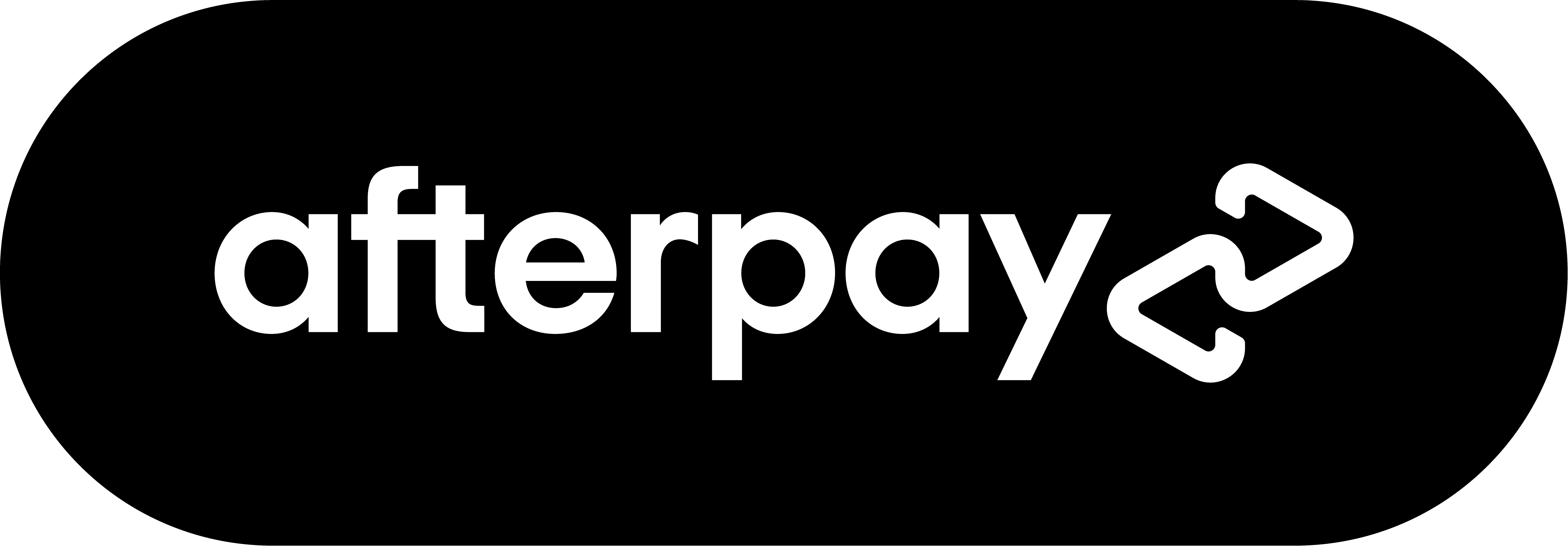
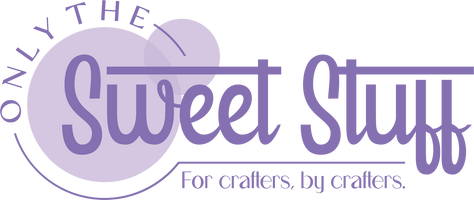
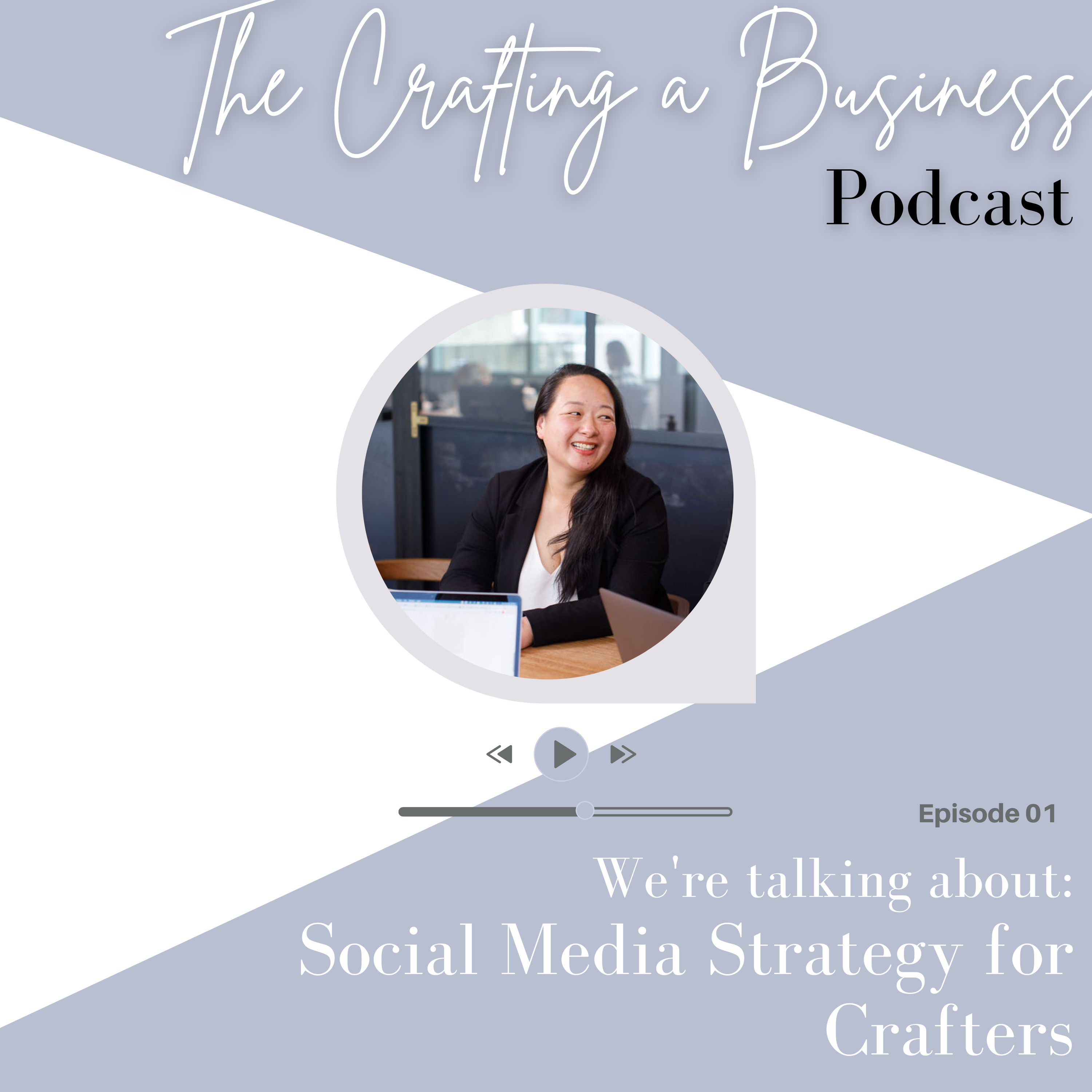
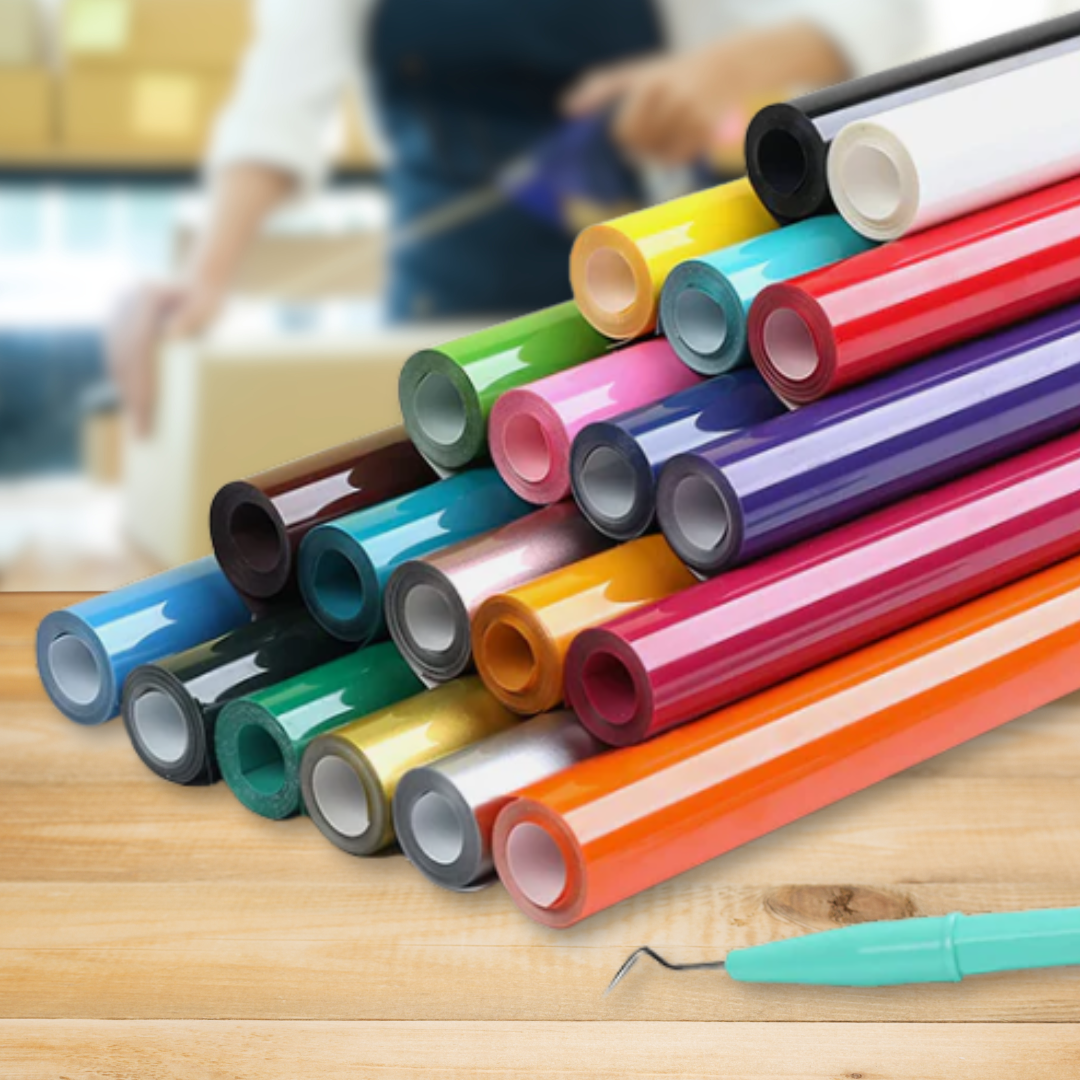
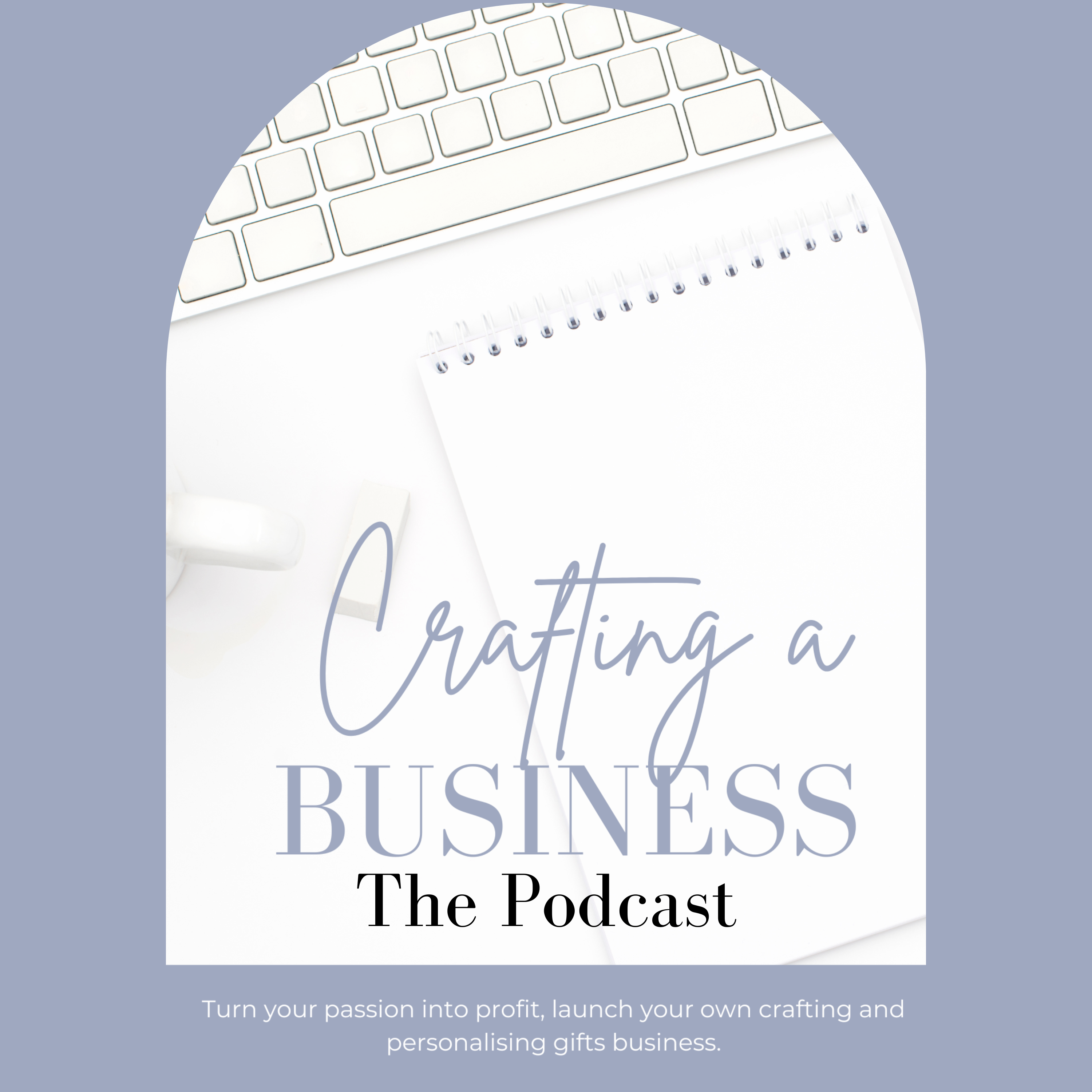
Comments
xshnsalrns —
Muchas gracias. ?Como puedo iniciar sesion?